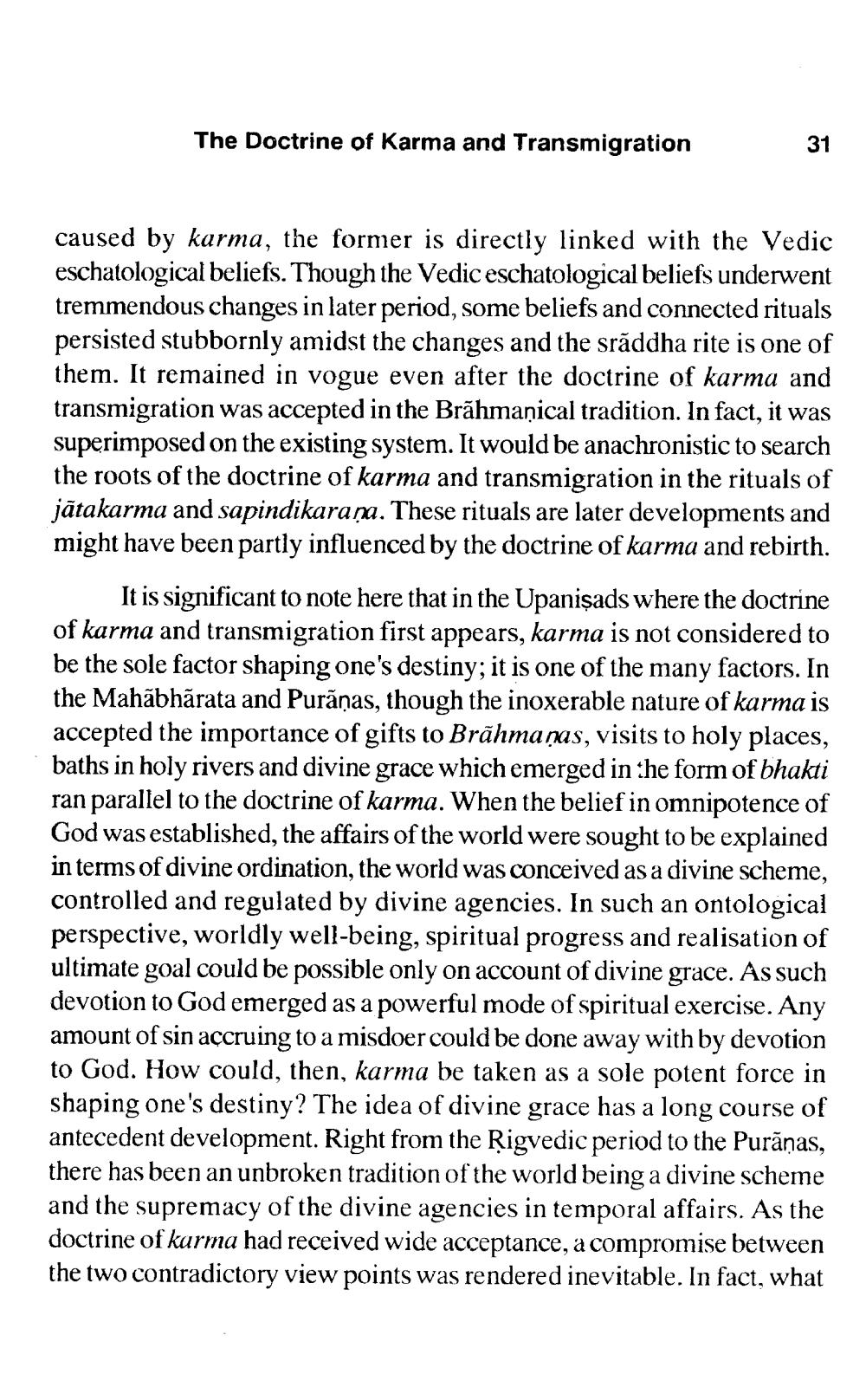________________
The Doctrine of Karma and Transmigration
caused by karma, the former is directly linked with the Vedic eschatological beliefs. Though the Vedic eschatological beliefs underwent tremmendous changes in later period, some beliefs and connected rituals persisted stubbornly amidst the changes and the srãddha rite is one of them. It remained in vogue even after the doctrine of karma and transmigration was accepted in the Brāhmaṇical tradition. In fact, it was superimposed on the existing system. It would be anachronistic to search the roots of the doctrine of karma and transmigration in the rituals of jātakarma and sapindikaraņa. These rituals are later developments and might have been partly influenced by the doctrine of karma and rebirth.
It is significant to note here that in the Upanişads where the doctrine of karma and transmigration first appears, karma is not considered to be the sole factor shaping one's destiny; it is one of the many factors. In the Mahābhārata and Purăņas, though the inoxerable nature of karma is accepted the importance of gifts to Brāhmaṇas, visits to holy places, baths in holy rivers and divine grace which emerged in the form of bhakti ran parallel to the doctrine of karma. When the belief in omnipotence of God was established, the affairs of the world were sought to be explained in terms of divine ordination, the world was conceived as a divine scheme, controlled and regulated by divine agencies. In such an ontological perspective, worldly well-being, spiritual progress and realisation of ultimate goal could be possible only on account of divine grace. As such devotion to God emerged as a powerful mode of spiritual exercise. Any amount of sin accruing to a misdoer could be done away with by devotion to God. How could, then, karma be taken as a sole potent force in shaping one's destiny? The idea of divine grace has a long course of antecedent development. Right from the Rigvedic period to the Purăņas, there has been an unbroken tradition of the world being a divine scheme and the supremacy of the divine agencies in temporal affairs. As the doctrine of karma had received wide acceptance, a compromise between the two contradictory view points was rendered inevitable. In fact, what




